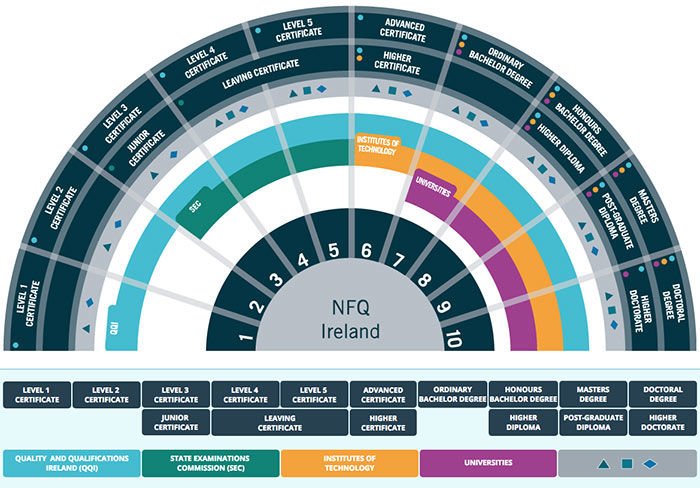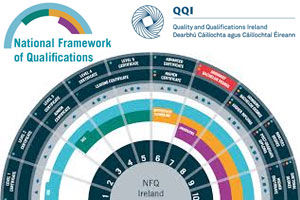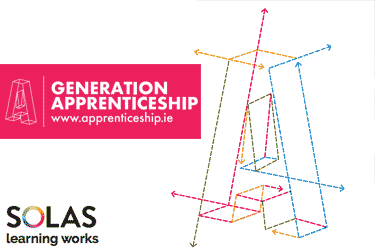PLC Courses as a Route to Third Level

The further education system opens up some valuable options for those leaving secondary education or those wishing to return to education. Further education also known as PLC (Post Leaving Cert) can be an alternative stepping stone into Higher Education Institutes. At the end of your studies it won’t really matter the method of entry, but the qualifications and experience gained. Many graduates will have the option of going directly into the workforce or progressing onto higher education on completion of PLC courses.
Who is the PLC route for?
Many argue it is for those who are more practical than academic. This may sometimes be the case. However with the variety of further education courses on offer, academically and creatively endowed candidates are well catered for also. Many entrants into the PLC sector of education will also have had the offer of CAO courses. However some PLC students may not want to commit to a 3 or 4 year course in a third level institution. They may prefer to experience a similar Level 5 or 6 certificate course to see if it suits. PLC courses can assist students in making a more informed decision prior to further commitment. There are also some further education courses that may be a better fit for what some students are looking for than those offered in higher education.
There are PLC courses that prepare you for specific further study as well. Courses such as Nursing Studies, Art-portfolio preparation and Pre-Engineering courses are some of these examples. Some students might also attend a PLC college in order to have a second opportunity to score higher points than they got in their leaving cert.
Whatever the reason for doing a PLC course, you will find over 1400 further education centres registered with QQI (Quality and Qualifications Ireland – Formerly FETAC).
The distinctive feature of further education is its diversity and breadth of provision. Also its linkages with other services such as employment, training, area partnership, welfare and community and voluntary sectors. Further education and training programmes often have a vocational or work focus and reflect national, regional or sectoral economic needs. An element of work experience and job preparation is inbuilt into all programmes, which are essential components for students who wish to enter the employment market. PLC courses are not just aimed at the student leaving school but also at adults returning to education.
Progression
Most PLC/FE courses lead to QQI Level 5 and 6 awards. In some cases you can progress with this award. This is done via The Higher Education Links Scheme or The Pilot Scheme which allow progression to a third level course in a variety of higher education institutions. These include universities, institutes of technology, technological universities and even private colleges. The Higher Education Links Scheme (HELS) facilitates progression to specific third level programmes whilst the Pilot Scheme allows you to compete for CAO places alongside leaving certificate students. Most Higher Level Institutes now reserve a quota of places for QQI graduates. If you look at the National Framework of Qualifications you can place yourself according to your level of education on the framework (. From your starting point you can go from one level to the next should you wish to do so. One level becomes a ladder to the next.
The National Framework of Qualifications is now the single structure mechanism for recognising all education and training in Ireland. All framework awards have an NFQ Level (1-10). This tells you about the standard and level of learning. The NFQ Award-Type tells you about the purpose, volume and progression opportunities associated with a particular award. A key element of the NFQ is to improve access (entry) to education and training. The aim is to allow ease of transfer within and between education and training and progression opportunities to higher levels. (see www.nfq.ie for further information)

In order to progress with your QQI award, applicants must have obtained a full QQI major award. Many students who complete a level 6 programme have advanced on to year 2 of a relevant higher education course. Some FE colleges even have individual progression agreements with a third level college. This allows students access to a specific number of reserved places in that college. Links with the UK have developed over the years between individual colleges and specific universities in the UK.
Further education courses are open to those with a Leaving Certificate or an equivalent qualification. It is recommended that students check individual course entry requirements. FE courses are also open to mature students subject to Leaving Certificate standard of education or suitable life/work experience. It is important to keep in mind that some of the most popular courses fill up by April each year. Most courses also require that you attend for an interview.
It is worth mentioning that there has been a decrease in the numbers of mature students applying to third level. There has also been an increase in those accessing further education at QQI Levels 5 and 6. Guidance Counsellors have also noted the increase in students making both PLC/FE and CAO applications each year (a good idea for anyone looking to increase their options after the Leaving Cert).
To see more details on PLC courses and further education courses on offer throughout the country, check out PLC and further education courses on Findacourse.ie





